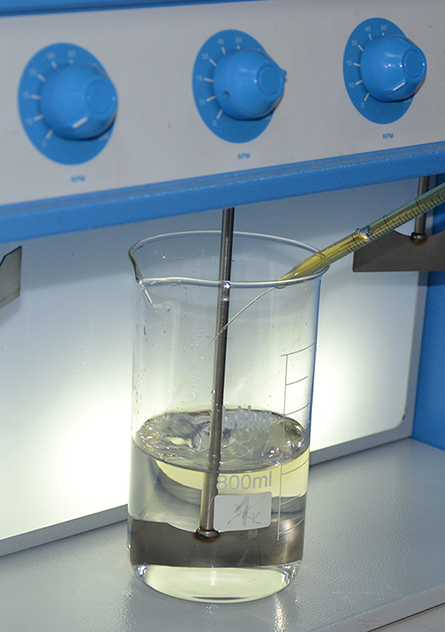





The World Health Organisation currently estimates that globally at least 140 million people in 50 different countries are still exposed to drinking water which contains arsenic at levels above the guideline value of 10 μg/l. This is a serious public health problem because the consumption of arsenic contaminated drinking water has been associated with increased incidence of cancer and other non-cancerous diseases such as heart and lung diseases. Here in Serbia, around 600,000 people are still supplied with arsenic contaminated drinking water. Therefore, the project addresses one of the key drinking water quality issues in Northern Serbia.
The use of hydroinformatics to predict and propose arsenic removal solutions is still under development worldwide and is an extremely promising field of research.
Thus, the application of hydroinformatics in water resource management and remediation approaches for Serbian water sources will significantly improve scientific rigor and quality of advice UNSPMF-EPRG gives to small water utilities. This is particularly related to how to economically solve their issues relating to arsenic contaminated groundwater, leading to greatly improved water quality. This improvement in water quality will increase the quality of life for people living in arsenic affected areas, many of whom are currently forced to drink relatively expensive bottled water to satisfy their daily drinking water requirements.
Introducing hydroinformatics tools to water supply systems with arsenic issues will facilitate the effective prioritization of the most at-risk areas. For instance, such tools can create a map of the worst arsenic-contaminated areas (ArcView), and hydroinformatics/Artificial Intelligence models can be developed to recommend alternative options for safe drinking water in the investigated areas (InstantTEA). These activities will enable the quick and concise delivery of critical information to key decision makers in arsenic affected regions, improving the ability of local authorities and other actors to respond to the challenges posed by wide-spread arsenic contamination of drinking water sources.

• To share and exchange scientific knowledge on arsenic research and hydroinformatics between the scientists of the two teams, strengthening our links with members of the Diaspora, widening our network of international collaborators.
• To develop hydroinformatics at the EPRG, where for the first time in Serbia, these tools will be used to improve water supply solutions for arsenic contaminated drinking water sources.
• To carry out joint research activities and submit scientific papers for publication in international journals, to disseminate the results of the HYDRA project to the scientific community.
• To identify future calls under various funding instruments, local and international, and prepare a draft joint project proposal.
The Environmental Protection Research Group (EPRG) has more than 40 years of experience in the field of environmental science and technology with expertise in environmental monitoring, environmental chemistry (transport processes and physical-chemical interactions of organic and inorganic contaminants and microplastic), remediation technologies (solidification/stabilization, electrokinetic remediation, bioremediation, phytoremediation), wastewater treatment technologies, drinking water treatment technologies (e.g. arsenic and NOM removal), risk assessment (water-sediment systems, contaminated sites, bioavailability of organic pollutants) and eco-management (introduction of EU WFD and IPPC Directives to Serbia). The research group has participated in more than 100 scientific and professional projects – more than 30 national and international projects and 80 projects for the needs of industry. In addition to its educational and scientific activities, EPRG also carries out routine analysis of environmental samples in the fully accredited Laboratory for environmental chemical analysis “Dr Milena Dalmacija” according to ISO 17025.
See more information on Environmental protection research group | (uns.ac.rs)
KWR Water Research Institute is the research institute of Dutch drinking water companies, also engaged in international research activities. KWR conducts research into conventional and advanced techniques that water companies can use to guarantee clean and safe drinking water, including hydroinformatic tools and techniques for managing risk and uncertainties associated with water systems.
See more information on Organisation | Vision | Mission | Bridging science to practice | KWR (kwrwater.nl)

Poštovani,
Pozivamo vas da prisustvujete on-line seminaru pod nazivom "Hidroinformatika u vodosnabdevanju - procena i ublažavanje rizika od arsena i upravljanje vodnim resursima", koji će se održati 24.11.2021. godine u periodu od 10-13 h, preko platforme Microsoft Teams.
Seminar organizujemo u okviru projekta "Application of hydroinformatics in water resource management to improve arsenic risk assessment and remediation approaches for Serbian water sources - HYDRA", finansiranog od strane Fonda za nauku Republike Srbije.
Predavanja će biti na srpskom jeziku. Prisustvo je besplatno.
Molimo sve zainteresovane da se prijave na email: aleksandra.tubic@dh.uns.ac.rs.
Očekujemo Vašu prijavu i dobrodošli na događaj!
AGENDA SEMINARA

07th June 2021: Marijana Kragulj Isakovski presented a paper titled "Arsenic removal from water using a new generation adsorbent: titanium dioxide coated with magnetic nanoparticles" at the 8th International Congress & Exhibition on Arsenic in the Environment, 7 – 9 June 2021, Netherlands.
Home page of event https://www.as2021congress.com/
18.03.2021: M Watson presented a poster titled "Application of spent filter sand for the removal of arsenic from groundwater" at the 7th International Congress "Engineering, Environment and Materials in Process Industry" Jahorina, March 17th - 19th 2021".
Program: https://eem.tfzv.ues.rs.ba/wp-content/uploads/2021/03/CONGRESS-EEM-2021-PROGRAM.pdf
Home page of event: https://eem.tfzv.ues.rs.ba/
University of Novi Sad, Faculty of Sciences,
Department of Chemistry, Biochemistry and Environmental Protection
prof. Jasmina Agbaba
e-mail: jasmina.agbaba@dh.uns.ac.rs